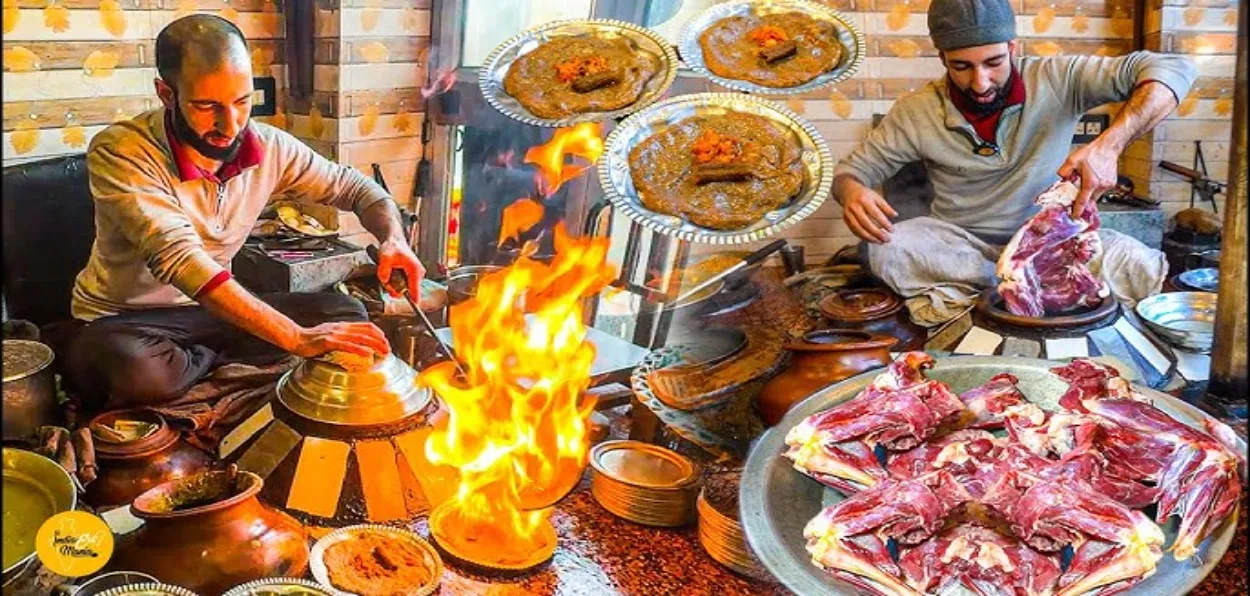
Ehsan Fazili/Srinagar
In June, Tauseef Ahmad’s family shifted to their new house in Sannat Nagar, Srinagar. In the true Kashmiri tradition, the housewarming party has been going on since day one; relatives, neighbours, and friends are expected at any time of the day to congratulate the family.
The womenfolk at the home were happy to have a stock of readymade kebabs handy to serve the guests who came with gifts of boxes of pastries, cakes, bakery, and fruits as “Mubarakbadi”.
However, the festivity, which continued throughout July, ended abruptly with the first seizure of 1200 kgs of rotten meat from the outskirts of Srinagar city on July 31. The stored kebabs were immediately thrown into the dustbin. “The family now serves home-made kebabs of keema from the local mutton shop and fried chicken to the guests”, said a family member. It’s a long process.
More than three weeks after this exposé, people in Kashmir have given up on frozen mutton, chicken and turned to their neighbourhood mutton shop.
This has resulted in a drop in the sales of meat and chicken dishes in hotels and restaurants across the valley as people doubt the sources of the meat. Many Kashmiris have become vegetarians, something that was unheard of earlier.
This voluntary trend has been observed since August 1, when the first seizure of rotten meat by the Food Safety Department and the Food and Drugs Administration (FDA), was reported. The samples from nearly 13000 kgs of rotten and stinking meat from Srinagar and adjoining areas have been sent for multiple tests.
According to the reports, only 12,00 hotels and restaurants were registered with the Kashmir Hotels and Restaurant Owners Association (KHAROA), while the actual numbers are in thousands, without any check. This means an overwhelming number of hotels and restaurants serving food (meat) are unregulated
According to Siraj Ahmad, President of the KHAROA, hotels and restaurants in Kashmir have witnessed a nearly 80 percent decline in sales during the past three weeks. He said the rotten meat issue was the second major blow to trade and business after the April 22 Pahalgam incident in Kashmir this year.
He said at a recent meeting of KKHAROA office bearers in Srinagar, the members decided to approach the Food Safety and Standards Authority of India (FSSAI) to identify the hotels, if any, involved in selling sub-standard meat, and seek punishment for them.
The members observed why “genuine” hotels would have to suffer and sought an immediate way forward to resolve the issue for return to a normal business.
“There was an abrupt decline in the sale of mutton during initial days after rotten meat was seized, which later picked up gradually”, Shabir Ahmad, a mutton dealer from Nawpora, a centres of mutton dealer in Srinagar told Awaz-The Voice.
“Now, women folk, relying on ready-made or frozen meat preparations, have returned to fresh mutton and chicken products”, he added. Shabir Ahmad said that so far no action against anyone had been taken, though a case was registered and two persons held, while “big fish” involved in these supplies were roaming free.
He also alleged lax approach of the authorities that led to such a scenario. “We sell fresh mutton, slaughtered (sheep) at our places”, in the absence of any slaughterhouses, he said. This practice is in vogue for centuries with the knowledge of the Government.
The Government de-controlled mutton sales in J&K in June 2023, whereby the Government has not been fixing the mutton rates. This has also affected the traditional roadside Tujewallas (barbeque meat on skewers), particularly in Khayam Chowk, which is a popular spot for this delicacy.
He lamented that non-professionals were providing fast food (barbeques) from the frozen mutton and chicken, leading to health issues, with an increasing number of cancer patients. “This is more hazardous and dangerous than the drug menace among Kashmir youth”, he said.
“We get livestock (sheep) daily transported from different places outside J&K and have been impressing upon the authorities to ensure checking for any dead animals at Lower Munda (Checkpost on Jammu-Srinagar national highway) before these trucks enter the valley”, said Khazir Mohammad Rigoo, President of Kashmir Butchers Union.
He said that there was no link between the mutton sales and the frozen meat preparations that struck the valley.
Regoo told Awaz-The Voice that 40 to 50 trucks each carrying 150 animals (sheep) enter Kashmir valley daily over the past about three weeks.
“The number of trucks should have been about 60 per day in view of the ongoing marriage season, but the question mark on frozen meat has declined the supplies”.
Rigoo, a seventh-generation butcher, said, Meat is indispensable for Kashmir. “Earlier, the governments would check mutton supply at three slaughter houses in Srinagar”, which no longer exist. “Now, we have slaughterhouses at our places”, with an increase in the demand and supply of mutton.
However, according to local media, many hoteliers are seeing an opportunity in this trend as they are creating and serving fusion dishes like Mushroom-kebab and promoting Kashmiri vegetarian dishes.
ALSO READ: Why is Kashmir's authentic food missing from menu of Valley's restaurants, eateries?
The restaurant food business is down while common people are afraid of buying mutton. “For weeks, my family stopped buying meat because we lost trust. We turned to vegetarian meals, and honestly, it has been refreshing. But the damage to meat sellers’ reputation is huge,” Greater Kashmir quoted a local Kashmiri.
